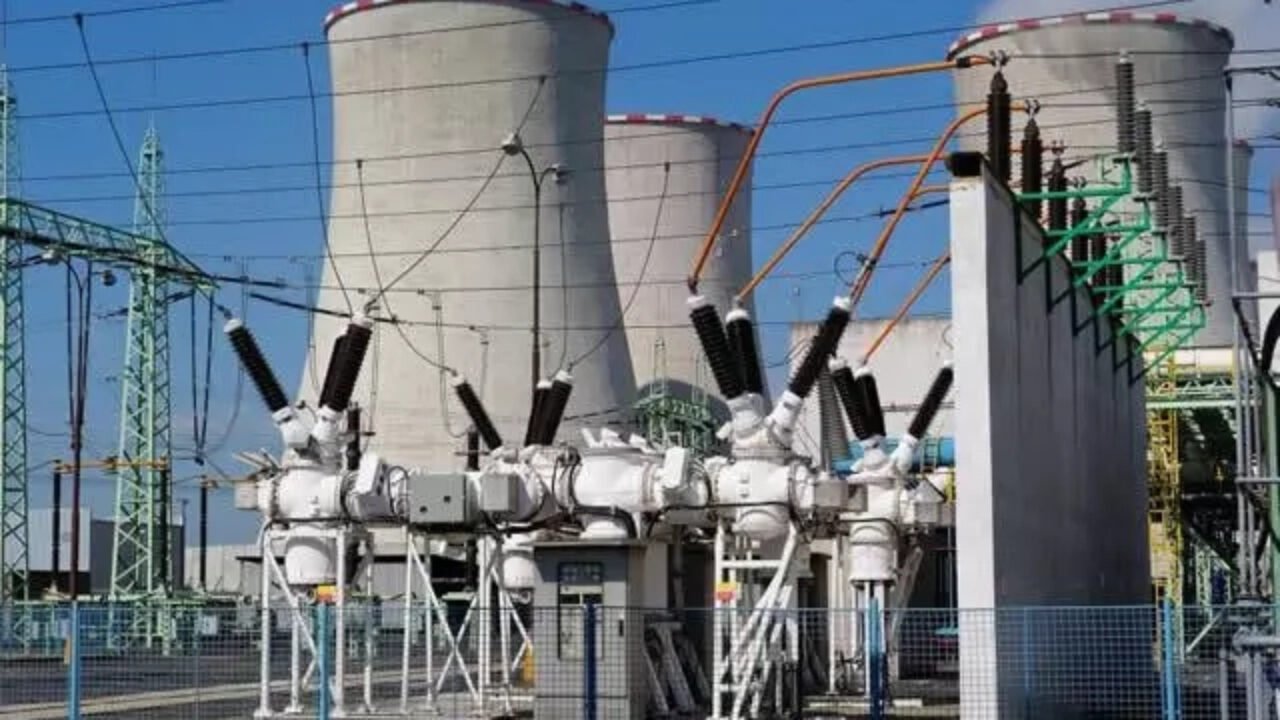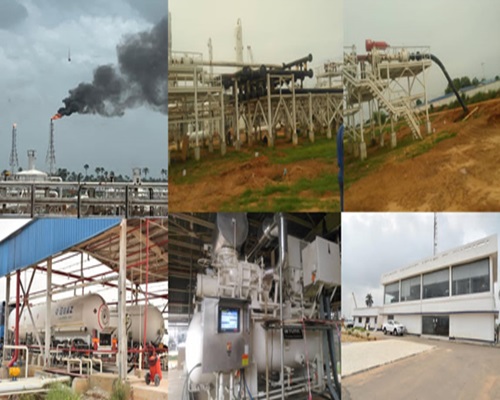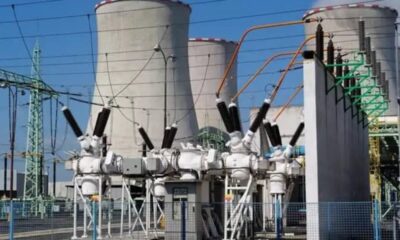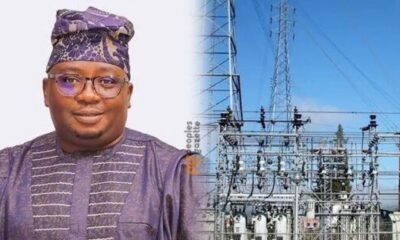Energy
Resolve metering gap to tackle estimated billing system — FG to DisCos

The Federal Government has charged power distribution companies to address metering gaps in the country in order to tackle the estimated billing system where customers pay more and receive less service.
It disclosed this during the week through the Nigerian Electricity Regulatory Commission during a meeting with investors/owners of Discos in the Nigerian Electricity Supply Industry in Lagos State.
The lack of adequate meters has remained an issue in the power sector, as power distributors are still finding it tough to meter consumers in their various franchise areas, hence, have resorted to over-billing end users by issuing estimated bills.
A report earlier stated that in the various Regulatory Interventions for Non-Compliance with the Order on Capping of Estimated Billing to Unmetered Customers, issued to the 11 Discos by the Nigerian Electricity Regulatory Commission (NERC), it was established that the power distributors raked over N105bn as a result of over-billing.
The NERC Chairman, Sanusi Garba, while explaining the key role of metering in addressing some of the challenges in the NESI, was quoted as saying, “Metering is an issue. Without metering, the issue of liquidity will not be resolved.”
“Customers want to pay for what they consume. It is the single most prevalent complaint of consumers. We cannot overlook the value of metering in the value chain, and we will continue to focus on how to close the gap because customers do not want to pay on the basis of estimated bills.”
Also speaking at the meeting, the Team Lead (Power), Office of the Special Adviser on Energy to the President, Eriye Onagoruwa, decried the huge metering gap in the power sector.
“There is a huge metering gap that needs to be bridged. The Presidential Metering Initiative is looking at bulk procurement of smart meters, developing homegrown systems of MDMS, reduction of ATC&C losses to globally accepted standards, and stakeholder engagement to identify challenges facing the sector, while carrying metering manufacturers along without compromising on cost, quality and delivery,” she stated.
Over seven million registered power users in the NESI are unmetered and are being charged estimated bills by the power 11 distribution companies.
On his part, the Commissioner, Finance and Management Services, NERC, Nathan Rogers, explained what customers should know with respect to the payment for meters.
He said, “Customers should not pay for meters when you (Discos) don’t have meters in stock. If you collect customers’ money, then you have to install meters for them at no additional cost regardless of when you install it,” he stated.
Rogers reminded the Discos that they cannot increase the meter price for customers that have already paid.
“You must meter customers at the price it was when they initially paid. You can’t charge them more,” he stated.
The Commissioner, Legal, Licencing and Compliance, NERC, Dafe Akpeneye, spoke on the lack of communication by Discos to their customers waiting to be metered.
He said, “NERC expects Discos to meter paid customers within 10 days. Currently, there is a communication gap with customers. Once they pay, you need to communicate with them and give them an installation date. Instead, the customer pays, hears nothing and continues to wait in perpetuity.”
The failure of Discos to provide meters had made the regulator put a cap on the amount that each power distributor should bill any particular customer in any given location.
But the Discos have been flouting this order by the regulator, leading to the recent sanction against the power firms by NERC.
It was reported on Saturday that the power sector regulator declared that it would deduct N10,505,286,072 from the annual allowed revenues of the 11 power distribution companies during the next tariff review as part of sanctions over their non-compliance with the capping of estimated bills for unmetered customers.
NERC stressed that the billing of unmetered customers by the power firms in their various franchise areas for 2023 revealed non-compliance with the monthly energy caps issued by the commission.
The regulator often issues orders stipulating the maximum amount that any unmetered customer is meant to pay to the distribution company that provides him or her electricity services.
The amount is continued until the customer is metered by the distribution company, according to NERC’s order to the power firms.
In its order, as reported on Saturday, the regulator said, “The public may recall that in 2020, the commission issued the order on Capping of Estimated Bills (Order No: NERC/197/2020) and subsequently issued monthly energy caps which aimed to align the estimated bills for unmetered customers with the measured consumption of metered customers on the same supply feeder.
“A review of the electricity distribution companies’ billing of unmetered customers for 2023 has revealed non-compliance with the monthly energy caps issued by the commission.”
In response to this and in a bid to safeguard unmetered customers from arbitrary billing by Discos, the commission stated that pursuant to Section 34(1)(d) of the Electricity Act 2023, it had issued the order on Non-Compliance with Capping of Estimated Bills (Order No: NERC/2024/004-01 4).
It said the order stipulates the following: “Credit adjustment to customers: Discos are to issue credit adjustments to all over-billed unmetered customers for the period January to September 2023 by the March 2024 billing cycle.
“Public notice: Discos have been directed to publish the list of credit adjustment beneficiaries in two national dailies and on their website no later than March 31, 2024.
“Regulatory sanctions: The commission shall deduct a sum of N10,505,286,072 from the annual allowed revenues of the 11 Discos during the next tariff review, to deter future non-compliance with the energy caps approved by the commission.”
Electricity consumers nationwide have continued to lodge complaints against excessive estimated bills by power distribution companies in Nigeria.
Energy
Unbundling of TCN will improve access to electricity — Experts


Some power experts have commended the Federal Government’s decision to unbundle the Transmission Company of Nigeria (TCN), saying this will improve access to electricity.
They spoke in separate interviews with journalists on Sunday in Lagos.
Recall that the Nigerian Electricity Regulatory Commission (NERC), on May 3, unbundled the TCN into two separate entities, raising hopes for a more efficient and reliable national grid, potentially leading to increased access to electricity.
NERC, acting under the provisions of the Nigeria Electricity Act, ordered the establishment of an Independent System Operator (ISO) to take over the market and system operations functions of TCN.
According to the order, TCN will retain its transmission service provider licence and continue to maintain power transmission infrastructure across the country.
Chairman, Customer Consultative Forum of Festac/Satellite Town, Dr Akinrolabu Olukayode, described the unbundling as a welcome development to further improve the power sector.
According to Olukayode, the attempt is striving at ensuring a balanced system where the monopoly enjoyed over these few years by TCN is dissolved to allow for new hands who will inject fresh ideas, devoid of monotonous inclined perennial failure as witnessed in recent times.
“The effectiveness of power transmission will largely be determined by the quantum of synergy between power generating channels and structure for maintenance of the grid.
“The generating plants should be energised to full capacity scale,” he said.
The expert urged the government to set 60 percent capital funding to subsidise expenditure on procurement from the budgetary allocation and offer shares for public subscription to keep the sector lubricated.
He said that TCN was partially progressive but undue government influences created rooms for bureaucracy which made its operations ladened with hiccups.
Olukayode said that there was a need for the government to declare a state of emergency in power that will usher in fresh hands to rid the system of saboteurs.
Also, National Coordinator, All Electricity Consumers Protection Forum, Mr Samuel Ilori, described the unbundling of TCN as good and welcoming, while advising the government to do due diligence and avoid the replica of what happened in distribution companies.
Ilori said that the unbundling is expected to improve service delivery and effectiveness, adding that many of the equipment and substations in the sector are moribund and obsolete.
He said that injection of money and expertise to the area of transmission might help stem the tide of incessant collapse of grids and allow what was being generated to be distributed.
“My advice is to scrap the privatisation of the distribution companies in 2013 by President Jonathan administration.
“If proper foundation was laid then and things were done according to the laid down rules of the Bureau of Public Enterprise (BPE) then as headed by Mrs Bolanle Onagoruwa, we will not be having this mess.
“The Siemens contract as of today remains elusive as we do not know what is going on.
“Government needs to declare a state of emergency in the sector to be able to set it on a recovery path,” he added.
A power expert, Mr Toluwalase Godwin, said the new operator would manage electricity demand and supply, ensuring the delivery of electricity where and when needed, without bias, at the lowest cost possible, while ensuring reliability and avoiding grid instability and collapse in the process.
“This means that NISO will be responsible for dispatch management, international transmission, capacity management, and wholesale market in the near future.
“Potentially signalling the near end of life for Nigerian Bulk Electricity Trading Plc, which currently oversees some of NISO’s functions,” he said.
He noted that this development is moving to a more liberalised market where NISO would be increasingly responsible for capacity auction, real-time energy market, ancillary services procurement, day-ahead market, spot market, reserve management, pricing and settlement.
“The separation of responsibilities between entities allows for a concentrated focus, with transmission services management predominantly revolving around technological aspects, while system operations are entrenched in energy economics.”
Energy
FG pegs electricity supply to international customers at 6% of available grid generation


The Federal Government has mandated system operators in the Nigerian power industry to supply not more than six percent of total available grid generation per hour to international customers or off-takers.
In a new order by the Nigerian Electricity Regulatory Commission (NERC) to electricity generation companies on Saturday, the regulator stated that the priority system of prioritising international customers and limiting distribution companies (Discos)’ offtake during times of imbalances in the grid is both inefficient and inequitable.
According to the new order, the aggregate capacity to be allocated by electricity generation companies to international off-takers in the next six months shall not be more than 10 percent of Genco’s generation capacity.
It stated, “The System Operator shall ensure that the maximum load allocation to international off-takers in each trading hour shall not be more than six percent of the total available grid generation.
“The aggregate capacity that can be nominated by a generating plant to service international off-takers shall not be more than 10 percent of its available generation capacity unless in exceptional circumstances a derogation is granted by the Commission.”
Furthermore, the new order mandated the system operators and the Transmission Company of Nigeria (TCN) to install IoT meters at all offtake and delivery points of Eligible Customers, bilateral supplies, cross-border trades, and outgoing 33kv feeders of the DisCos to provide real-time data on supply to offtakers.
The new order also mandates the system operator to publish hourly readings of adherence to grid instructions to check for violations of offtake contracts and also publish the previous day’s hourly log reading to market participants.
The Federal Government has observed that electricity generation companies in times of low grid availability prefer to supply to international customers sometimes above the allocated offtake on the bilateral contracts.
The NERC noted that such practices have caused untold hardship to Nigerians due to irregular supply to Discos, especially during times of high demand, hence this order.
By the order, the Federal Government is prioritising electricity supply to local customers- industrial and residential- following the hike in electricity tariff to Band A customers and the need to ensure the set hours of electricity supply to different categories of local customers is met.
Energy
Over 500mmscf/d gas supply projects to be commissioned — Presidency


The Presidency has disclosed plans to commission over 500mmscf/d gas supply projects across the country.
This is in line with the country’s move to transition from fossil fuels to gas according to its Decade of Gas initiative.
In a press statement on Friday, the spokesperson to the President, Ajuri Ngelale outlined three projects the President is billed to commission.
The statement reads: “In line with his commitment to significantly leverage gas to grow the economy, President Bola Tinubu will commission three critical gas infrastructure projects being undertaken by the Nigerian National Petroleum Company Limited (NNPCL) and partners.
“The projects support the federal government’s effort to grow value from the nation’s gas assets while eliminating gas flaring.
“The delivery of the projects was accelerated from the inception of the administration in keeping with the overall objective of deepening domestic gas supply as a critical enabler for economic prosperity.
“The projects lined up for commissioning include: (1) AHL Gas Processing Plant 2 (GPP – 2) – 200mmscf/d. This project is an expansion to the Kwale Gas Processing Plant (GPP – 1), which currently supplies about 130MMscf/d of gas to the domestic market. The processing plant is designed to process 200MMscf/d of rich gas and deliver lean gas through the OB3 Gas Pipeline. This additional gas supply will support further rapid industrialization of Nigeria. ”The plant will also produce about 160,000 MTPA of Propane and 100,000 MTPA of Butane, which will reduce the dependency on LPG Imports. The AHL Gas Plant is being developed by AHL Limited, an incorporated Joint Venture owned by NNPC Limited and SEEPCO.”
“(2) ANOH Gas Processing Plant (AGPC) – 300MMscf/d. The ANOH gas plant is an integrated 300MMscf/d capacity gas processing plant designed to process non-associated gas from the Assa North-Ohaji South field in Imo State. The plant will produce dry gas, condensate, and LPG. The gas from ANOH gas plant will significantly increase domestic gas supply, leading to increased power generation and accelerated industrialisation. The ANOH Gas Plant is being developed by ANOH Gas Processing Company, an incorporated Joint Venture owned by NNPC Limited and Seplat Energy Plc on a 50-50 basis.
“(3)ANOH-OB3 CTMS Gas Pipeline Project. The project involves the engineering, procurement, and construction of 36”x23.3km ANOH-OB3 Project. The Transmission Gas Pipeline will evacuate dry gas from the Assa North-Ohaji South (ANOH) primary treatment facility (PTF) to OB3 Custody Transfer Metering Station (CTMS) for delivery into the OB3 pipeline system. About 600MMscf/d is estimated to be available from two separate 2 x 300MMscf/d capacity gas processing production trains from AGPC & SPDC JV.”
“When commissioned, the projects will increase gas supply to the domestic market by approximately 500mmscf/d, creating a better investment climate and promoting balanced economic growth cumulatively.”
-
capital market2 years ago
Rt.briscoe, FBNH, Others halts negative performance of stock market
-
Finance3 months ago
Court orders Sen. Victor Umeh to repay N136m bank debt to AMCON
-



 Abuja Update2 months ago
Abuja Update2 months agoUNDP, FG partnership needed to achieve inclusion, equity- Minister
-
Abuja Update1 month ago
Banks drive stock market performance with N147bn gain
-



 Business2 weeks ago
Business2 weeks agoTingo Group unveils Tingo Electric, Tingo Cola drink at Lagos launch
-



 Health3 weeks ago
Health3 weeks agoCapacity training will reduce migration of health workers- NPHCDA
-
News4 months ago
Oil thieves sponsoring malicious media campaign against Navy – Spokesman
-



 Infotech1 month ago
Infotech1 month agoWorld Backup Day: NITDA urges Nigerians to ensure backup of data
















